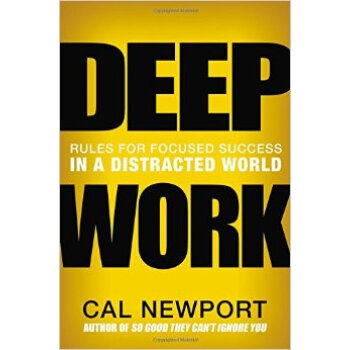![Moral Clarity: A Guide for Grown-Up Idealists [精装]](https://pic.windowsfront.com/19234569/rBEGFE-jaYwIAAAAAAAjIlmJyxgAAAu9QLKSBcAACM6858.jpg)

具体描述
内容简介
For years, moral language has been the province of the Right, as the Left has consoled itself with rudderless pragmatism. In this profound and powerful book, Susan Neiman reclaims the vocabulary of morality--good and evil, heroism and nobility--as a lingua franca for the twenty-first century. In constructing a framework for taking responsible action on today's urgent questions, Neiman reaches back to the eighteenth century, retrieving a series of values--happiness, reason, reverence, and hope--held high by Enlightenment thinkers. In this thoroughly updated edition, Neiman reflects on how the moral language of the 2008 presidential campaign has opened up new political and cultural possibilities in America and beyond. --This text refers to an out of print or unavailable edition of this title.作者简介
SUSAN NEIMAN?is an American philosopher who has taught at Yale University, Tel Aviv University, and the Humboldt University of Berlin, and is currently director of the Einstein Forum. She is the author of three previous books, most recently Evil in Modern Thought. She lives with her three children in Berlin.精彩书评
"Her prose is clear and vigorous, and as exhilarating as a good spin class, but don't be mistaken: This is not Philosophy for Dummies...If you prefer your philosophy to offer make-nice advice ("Tolerate diversity!" "Recycle!"), Moral Clarity is not for you. Neiman attacks both the left and the right for their failings--and praises them for their different strengths. You might find yourself disagreeing with some of her analyses, which is inevitable--and even desirable. Neiman wants engagement, not sheeplike agreement, and her book is meant to spark conversation." -- Body and Soul Magazine, June 2008"The Enlightenment project of constructing a rational morality--pronounced dead by commentators on the left and right--has found a champion determined to resurrect it for the twenty-first century." -- Booklist (starred review) April 1, 2008"The seemingly endless contest between Barack Obama and Hillary Clinton is, among other things, a referendum on that perennial question: what ails the American left? To this stale discussion Susan Neiman brings a new thought: the problem with our liberal elites, she insists, is a lack of philosophical nerve. The task Neiman sets herself is to rescue today's political left from its own handicaps. Neiman is a subtle and energetic guide to the unjustly maligned Western canon (who) writes with verve and a sometimes epigrammatic wit....Moral Clarity is a plea for renewal, an argument for re-engaging with the moral vocabulary of the country." -- Wall Street Journal, May 5, 2008"Neiman's particular skill lies in expressing sensitivity, intelligence and moral seriousness without any hint of oversimplification, dogmatism or misplaced piety. She clearly and unflinchingly sees life as it is, but also sees how it might be, and could be, if we recaptured some of the hopes and ideals that currently escape us." -- The New York Times, July 27, 2008 (Simon Blackburn)"Susan Neiman is a masterly storyteller; her new book Moral Clarity offers retellings of the Odyssey and the Book of Job that are themselves worth the price of admission. But she also has stories about the origins of her own position that place her in both larger intellectual narratives and more local political ones...Her project can be seen as a progressive alternative to (Allan Bloom's) The Closing of the American Mind." -- Slate, May 27, 2008 (K. Anthony Appiah)精彩书摘
Chapter One American Dreams Of all the things in the world that need changing, metaphysics may not be high on your list of priorities. But to understand how metaphysics circumscribes your life, consider what you mean when you tell someone: Be realistic. A前言/序言
用户评价
这本书的结构安排,体现出作者对读者心路历程的深度理解。它不是一次性的信息倾泻,而是一个精心设计的“攀登过程”。从最初的建立共识,到中段的激烈辩论和自我怀疑,再到最后的回归于一种更为坚实和可操作的“明晰”状态,整个流程设计得环环相扣,节奏感极佳。读完合上书本的那一刻,我感到的是一种久违的、思想上的“通透感”。那种感觉就像是走在迷雾中,突然间一道光打下来,照亮了前方的道路,虽然前路依然漫长,但方向已经清晰可见。这本书的价值,不在于它能解决所有问题,而在于它能帮你校准内在的罗盘,让你在面对不确定性时,知道自己“应该”站在哪一边,并有勇气去捍卫那个立场。这是一次真正的精神洗礼,而非简单的知识补给。
评分这本书最让我感到震撼的地方,在于它对现实情境的捕捉能力,那种洞察力几乎是穿透表象直达核心的。作者似乎对我们当下社会中那些模糊不清、人人都心知肚明却又避而不谈的道德灰色地带有着极其敏锐的嗅觉。我发现自己经常在阅读过程中,脑海中自动浮现出最近工作、家庭乃至国际新闻中的具体案例,并尝试用书中的框架去套用和分析。这种即时性的关联和应用性,是衡量一本非虚构作品价值的重要标准。它没有给我提供廉价的“标准答案”,而是提供了一套强健的分析工具箱,教会我如何用更清晰的视角去看待那些曾经让我感到困惑和妥协的瞬间。这是一种赋能,让我感觉自己看待世界的方式发生了一次微妙但根本性的升级。
评分行文的语言风格独树一帜,夹杂着一种恰到好处的幽默感,这在严肃主题的作品中是比较少见的亮点。作者的笔触既有学者的严谨,又不失一位资深观察家的那种老辣和洞察。他能用非常日常、接地气的语言,去阐述那些原本高高在上、拒人于千里之外的伦理原则,使得这些原则不再是象牙塔里的陈旧教条,而成为了可以实际操作的行为准则。我特别喜欢他偶尔插入的一些个人轶事或历史小故事,这些点缀不仅中和了文本可能带来的沉重感,更重要的是,它们常常是理解复杂概念的绝佳入口。这种张弛有度的文风,让阅读过程变得轻松愉快,即便面对挑战性的思想内容,也不会让人感到压力过大,反而充满了探索的乐趣。
评分这本书的封面设计着实引人注目,那种深沉的蓝色调配上烫金的字体,立刻给人一种庄重而又充满思辨的意味。拿到手的时候,厚重感十足,让人感觉它不是一本快餐式的读物,而是需要静下心来细细品味的砖头书。内页的纸张质量也无可挑剔,阅读体验非常舒适,长时间阅读也不会感到眼睛疲劳。装帧工艺看得出是下足了功夫,即便是作为书架上的陈列品,它也散发出一种低调的品味。我喜欢这种实体书的感觉,那种翻动纸张时特有的沙沙声,是电子阅读无法替代的仪式感。从装帧的细节之处,就能感受到作者或出版方对“严肃探讨”的尊重。它不仅仅是一本书,更像是一个可以长期陪伴的思考伙伴。我常常在光线柔和的午后,泡上一杯热茶,捧着它开始我的阅读旅程,那种沉浸感极强,让人愿意全身心投入到文字构建的世界里去。
评分我特别欣赏作者在行文逻辑上所展现出的那种近乎手术刀般的精准度。叙事的节奏把握得恰到好处,既不像某些理论著作那样晦涩难懂,让人望而却步,也没有沦为肤浅的口号宣讲。它更像是在引导一场结构严谨的对话,层层递进,从基础的概念辨析开始,逐步深入到复杂的伦理困境分析。每一次观点提出,都辅以充分的论据和历史背景的支撑,使得论证过程显得无可辩驳,却又留下了足够的空间供读者进行自我反思和再构建。读到一些关键的转折点时,我甚至会停下来,闭上眼睛,在脑海中重新梳理刚才读到的那些复杂的因果链条。这种阅读体验,远超出了我预期的“指南”范畴,更像是一堂高阶的哲学研讨课,令人大呼过瘾。
相关图书
本站所有内容均为互联网搜索引擎提供的公开搜索信息,本站不存储任何数据与内容,任何内容与数据均与本站无关,如有需要请联系相关搜索引擎包括但不限于百度,google,bing,sogou 等
© 2026 book.coffeedeals.club All Rights Reserved. 静流书站 版权所有

![How to Make Bread [精装] pdf epub mobi 电子书 下载](https://pic.windowsfront.com/19285983/569f04a3N75c1ba26.jpg)
![What Is the Name of This Book?: The Riddle of Dracula and Other Logical Puzzles [平装] pdf epub mobi 电子书 下载](https://pic.windowsfront.com/19347985/rBEhVFJbcq0IAAAAAACX9cKCMtQAAEGwgKFhHoAAJgN260.jpg)
![This Is Edinburgh [精装] [05--08] pdf epub mobi 电子书 下载](https://pic.windowsfront.com/19368349/rBEhUlJbhmsIAAAAAABQJW17U1UAAEG-QGTifcAAFA9902.jpg)
![Little Burro [精装] [3岁及以上] pdf epub mobi 电子书 下载](https://pic.windowsfront.com/19454711/rBEhWVJYnvcIAAAAAADZlDlBOTgAAECzwERljUAANms712.jpg)
![Strategic Management: Concepts and Cases [平装] pdf epub mobi 电子书 下载](https://pic.windowsfront.com/19456440/rBEhWlKdsgIIAAAAAAMkTDAlny8AAGR6AGqNfgAAyRk315.jpg)
![Fashion Designers' Sketchbooks 2 [精装] pdf epub mobi 电子书 下载](https://pic.windowsfront.com/19461972/rBEhWVK5PSYIAAAAAAHGTu7L_awAAHKrgCIZbgAAcZm381.jpg)
![African Cosmos [精装] pdf epub mobi 电子书 下载](https://pic.windowsfront.com/19482833/5469bfadN0cfa5e93.jpg)
![Reference and Essence [平装] pdf epub mobi 电子书 下载](https://pic.windowsfront.com/19511703/54631482N851f293d.jpg)
![The Seasons of a Man's Life [平装] pdf epub mobi 电子书 下载](https://pic.windowsfront.com/19519163/54631fcdN1d01bccf.jpg)
![One Click Jeff Bezos and the Rise of Amazon.com [平装] pdf epub mobi 电子书 下载](https://pic.windowsfront.com/19536322/552382afN3696834a.jpg)
![Tiffany Glass A Passion For Colour [精装] pdf epub mobi 电子书 下载](https://pic.windowsfront.com/19544170/55cc0f4eN368c81b1.jpg)
![Collected: Living with the Things You Love [精装] pdf epub mobi 电子书 下载](https://pic.windowsfront.com/19545150/55e6c7b7N7166d10b.jpg)
![Francis Bacon And The Masters [精装] pdf epub mobi 电子书 下载](https://pic.windowsfront.com/19545819/55f7eea3Na7f285d7.jpg)
![Macmillan Readers Old Curiosity Shop The Intermediate Reader [平装] pdf epub mobi 电子书 下载](https://pic.windowsfront.com/19567968/567b944bNf980b118.jpg)
![English For Life: Writing - Upper Intermediate B2 [平装] pdf epub mobi 电子书 下载](https://pic.windowsfront.com/19573291/56a6dde9N14dc5c0b.jpg)
![Oona Finds an Egg (The Oodlethunks #1)欧德萨克斯系列1:欧娜发现了一个蛋 [平装] [8-12岁] pdf epub mobi 电子书 下载](https://pic.windowsfront.com/19573754/569c9b4cN5c9e243b.jpg)
![How To Control Your Anxiety Before It Controls You [平装] pdf epub mobi 电子书 下载](https://pic.windowsfront.com/19635342/57833297Nd74e5716.jpg)

![Swim Speed Strokes for Swimmers and Triathletes: [平装] pdf epub mobi 电子书 下载](https://pic.windowsfront.com/19639787/578342c4N35b9d495.jpg)
